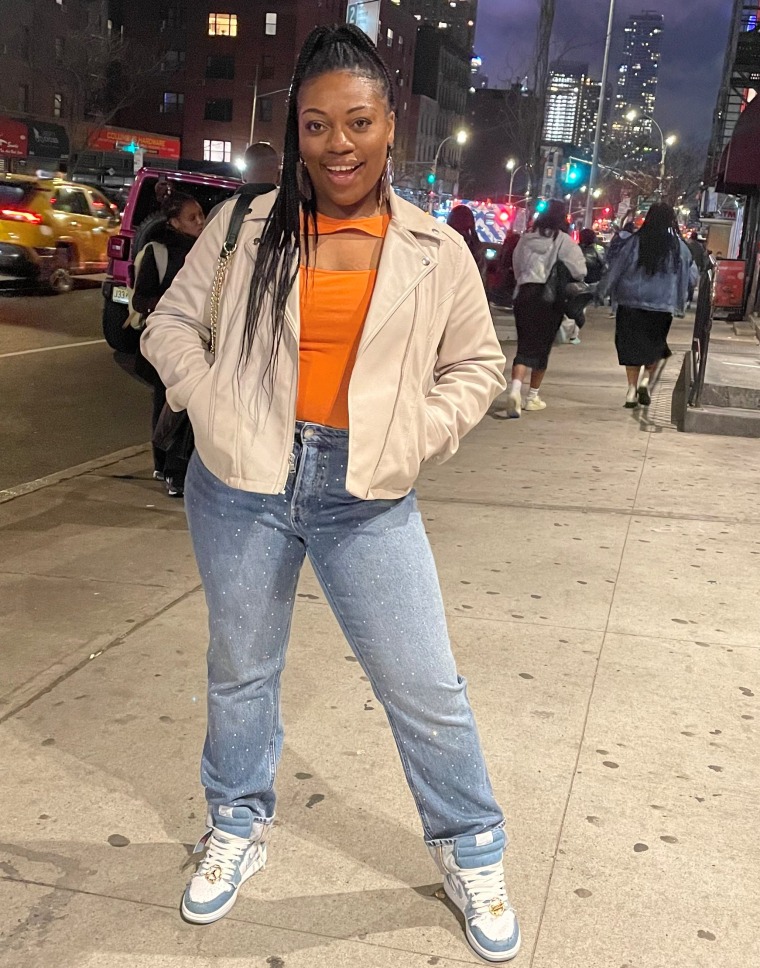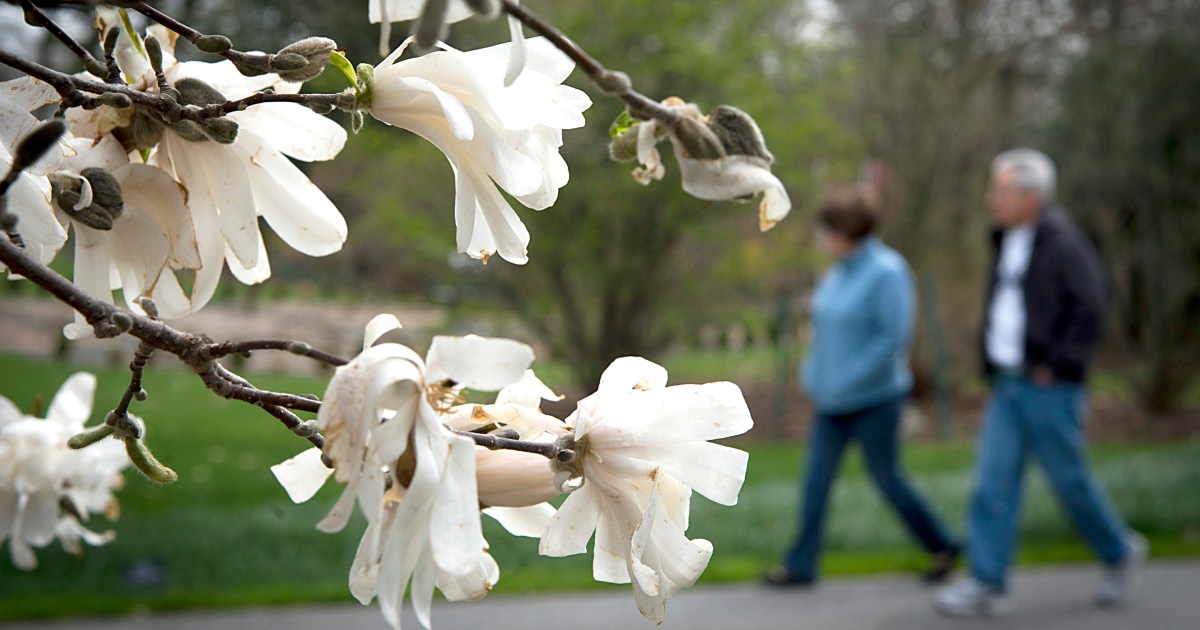For several years now, we have lived in a world where every sneeze, every hint of a sore throat or stuffy nose makes a person stop. is it covid Just a cold?
For a growing number of adults in their 30s, 40s and 50s, those symptoms are becoming the hallmark of something they’ve never had to deal with before: seasonal allergies.
«What I see is people coming in for the first time, especially in the last five or seven years,» said Dr. Clifford Bassett, an allergist at NYU Langone Health in New York City. «They will always say: ‘I don’t understand how this is happening to me.'»
Dr. Michele Pham, an allergist and immunologist at UCSF Health in San Francisco, has noticed the same trend.
«We’ve had patients come to us saying, ‘This hasn’t been a problem in the past,'» Pham said. «They are now having symptoms, or their allergy symptoms have worsened significantly.»
It’s unclear how many people experience pain from pollen for the first time, although the Centers for Disease Control and Prevention recently reported that about a quarter of adults in the United States had a seasonal allergy in 2021, the first time the CDC recorded data on Seasonal Allergies for adults.
A big driver of adult-onset seasonal allergies appears to be climate change.
«Pollen season right now is about three weeks longer than it was 30 years ago, and there’s about 20 percent more pollen in the air,» said Dr. Neelu Tummala, an otolaryngologist and co-director of the Climate Institute of Health at George Washington University. Those statistics come research published in 2021.
As Earth’s core temperature rises, Tummala explained, the ground thaws earlier in the year, awakening trees from their winter slumber, prompting them to flower and produce pollen earlier than ever.
A ‘pollen storm’
It’s not just that the season lasts longer. The vast amount of pollen in the air has exploded.
The burning of fossil fuels, another cause of global warming, increases carbon dioxide. As CO2 levels rise, plants and trees produce more pollen.
Dr. Stanley Fineman, an allergist at Atlanta Allergy and Asthma and a spokesman for the American College of Allergy, Asthma & Immunology, calls the phenomenon a «pollen storm.»
«Pollen counts, particularly this season, have been much, much higher than in the past,» he said.
The symptoms begin at the beginning of the year and are more severe. The increase in symptomatic allergies translates into more money spent on treatments, doctor visits, and impacts on quality of life.
«It’s not just that pollen allergy seasons are annoying,» Tummala said. «They also affect cognitive function. They affect sleep quality.»
Many people are likely genetically predisposed to allergies but have never been bothered by them before, experts say.
Now that pollen counts have increased, «I think it affects them more, because their system is overloaded,» Fineman said.

Kiara Wilson, a 32-year-old teacher from Brooklyn, New York, said that all she experienced in recent years was a slight itch in her throat.
However, this allergy season has been very different. «I couldn’t stop sneezing. I had to sneeze 50 to 75 times,» Wilson said. «I actually had to buy allergy medicine for the first time.»
What are the symptoms of seasonal allergies?
While many allergy symptoms, such as congestion and coughing, can overlap with respiratory viruses, one symptom is a telltale sign of an allergic reaction: itching.
«The biggest symptom I would suggest is itchy eyes, nose and throat,» Bassett said. «It doesn’t itch if you have a cold or if you have a sinus infection.»
However, the symptoms are not always clear cut and may overlap with other respiratory illnesses.
«We’ve definitely had patients come into our clinic and they thought they had allergies, but instead they had covid,» Pham said.
How are seasonal allergies treated?
The wide range of allergy medications in pharmacies can be overwhelming.
Topical therapies, either prescription or over-the-counter, that target the itching sensation tend to be more effective, said Pham of UCSF Health. These include nasal sprays, eye drops, and skin creams.
People aren’t just seeking relief from pollen for the first time; the lengthening of the allergy season and the increasing amount of pollen in the air have led doctors to change the direction of treatment.
Tummala, of George Washington University, said some patients need to use allergy medications more often, in higher doses, or in combination with other strategies.
«Before you could get away with just using an intranasal steroid, and now you have to do a neti pot rinse and then the steroid,» he said.
Other ways to keep pollen away:
- Wear a hat and sunglasses outdoors.
- Clothes washing.
- Take a shower immediately after spending a significant amount of time outdoors.
Pollen counts tend to be lowest in the morning.
«If you need to get outside, that’s the time to do it,» Fineman said.

